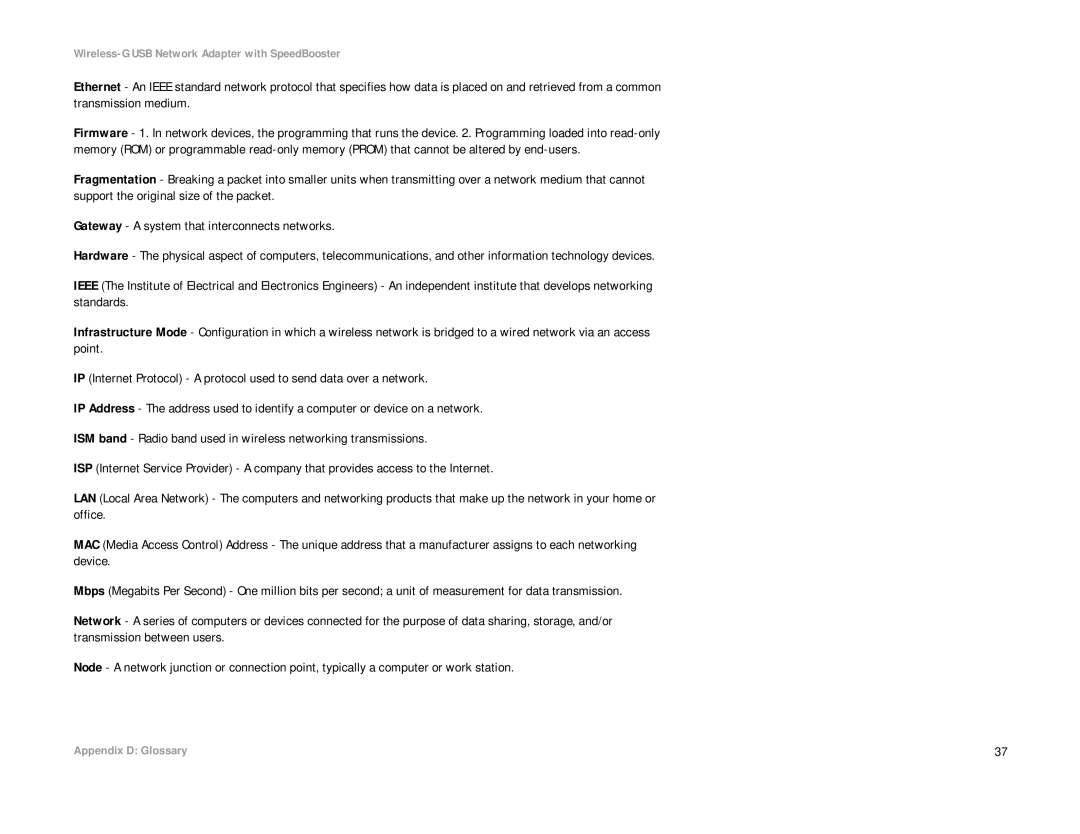Wireless-G USB Network Adapter with SpeedBooster
Ethernet - An IEEE standard network protocol that specifies how data is placed on and retrieved from a common transmission medium.
Firmware - 1. In network devices, the programming that runs the device. 2. Programming loaded into
Fragmentation - Breaking a packet into smaller units when transmitting over a network medium that cannot support the original size of the packet.
Gateway - A system that interconnects networks.
Hardware - The physical aspect of computers, telecommunications, and other information technology devices.
IEEE (The Institute of Electrical and Electronics Engineers) - An independent institute that develops networking standards.
Infrastructure Mode - Configuration in which a wireless network is bridged to a wired network via an access point.
IP (Internet Protocol) - A protocol used to send data over a network.
IP Address - The address used to identify a computer or device on a network.
ISM band - Radio band used in wireless networking transmissions.
ISP (Internet Service Provider) - A company that provides access to the Internet.
LAN (Local Area Network) - The computers and networking products that make up the network in your home or office.
MAC (Media Access Control) Address - The unique address that a manufacturer assigns to each networking device.
Mbps (Megabits Per Second) - One million bits per second; a unit of measurement for data transmission.
Network - A series of computers or devices connected for the purpose of data sharing, storage, and/or transmission between users.
Node - A network junction or connection point, typically a computer or work station.
Appendix D: Glossary | 37 |
